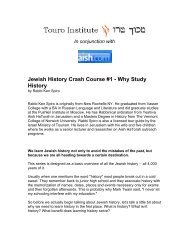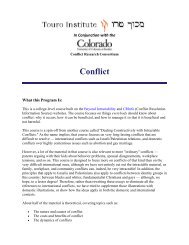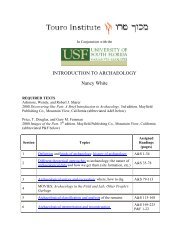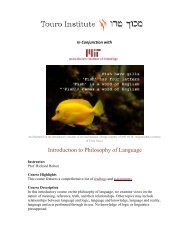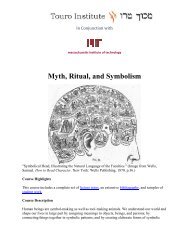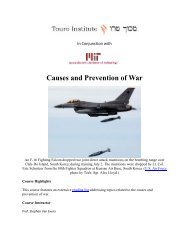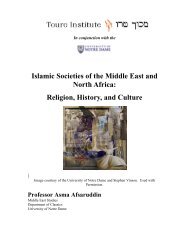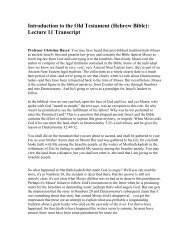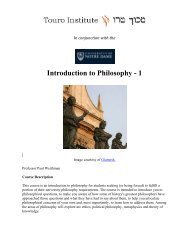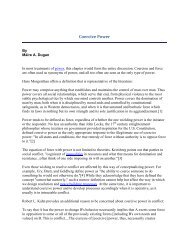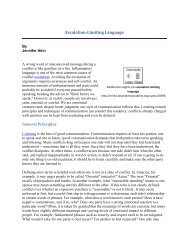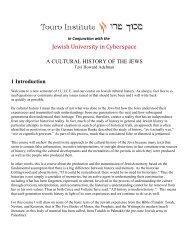In Conjunction with Cultural Anthropology - Touro Institute
In Conjunction with Cultural Anthropology - Touro Institute
In Conjunction with Cultural Anthropology - Touro Institute
Create successful ePaper yourself
Turn your PDF publications into a flip-book with our unique Google optimized e-Paper software.
the lives of horticulturists.<br />
8. According to Michael Harner, the Shuar, (Jivaro) of Ecuador and Peru hunt<br />
meat <strong>with</strong> blowguns and darts covered <strong>with</strong> curare.<br />
9. Among horticulturists, the authority of family organizations is typically<br />
great.<br />
10. Compared <strong>with</strong> foraging, life based on horticulture generally leads to<br />
greater emphasis in child-rearing on compliance and responsibility in children<br />
Short Essay Questions - Chapter 13: Environment, Adaption, and Subsistence<br />
1. Why, according to Kroeber, do societies that occupy similar natural environments often share<br />
many similarities of culture?<br />
2. Where is the greatest concentration of foragers today?<br />
3. Describe the basic characteristics of band societies.<br />
4. List and describe the differences between the four basic types of foraging adaptation that have<br />
been outlined by Ernestine Friedl.<br />
5. According to Turnbull's description of the Ituri Forest Pygmy, how do net hunting bands<br />
contrast <strong>with</strong> archery hunting bands in terms of seasonal changes in their group structure?<br />
6. Explain the idea of optimal foraging theory.<br />
7. How did the development of food production alter the lives of human beings in terms of the<br />
size of their local communities and the length of their work weeks?<br />
8. Explain the views of Frisch and McArthur about the effects of sedentarism and the shift of<br />
emphasis from hunting to gathering in the ancient Near East on human population growth.<br />
9. How do horticulturists differ from foragers in their approach to government and family<br />
organization?<br />
10. Why did pastoralists frequently have a militaristic lifestyle?<br />
Reading Assignment: Chapter 14: <strong>Cultural</strong> Evolution and the Contemporary<br />
World<br />
<strong>In</strong> this assignment you will learn the processes by which the worlds non-industrialized societies<br />
are becoming extinct. You will learn about the effects of industrialization and development on<br />
the underdeveloped societies of the world today. You will develop insights into the nature of<br />
peasant societies, including those of the past as well as the present.



